 >Home>
SEPKU News
>Home>
SEPKU News
On the afternoon of October 23, 2021, the 2021 International Forum and the Third European Forum was successfully held through the online conference platform by the School of Economics at Peking University. This forum was co-sponsored by the School of Economics at Peking University and the Peking University- EU Economics and Strategy Research Center at Bank of China. The forum focused on the theme "Recover, Rebuild, Reconnect: World Economy beyond COVID -19) and conducted in-depth discussions on the future of global economy and cooperation in the post-epidemic era.
Giancarlo Corsetti, Professor of Macroeconomics of Department of Economics at University of Cambridge, Professor Feng Zhongping, Director of the Institute of European Studies at Chinese Academy of Social Sciences, Guido D. Giacconi, Vice President of the European Chamber of Commerce, Oliver Linton, Academician of Trinity College and Professor of Political Economy in the Department of Economics at University of Cambridge, Fang Hai, Professor of Health Economics at the China Health Development Research Center of Peking University, and Lorenzo Casaburi, Associate Professor of the Department of Economics at the University of Zurich, attended the forum and each gave a speech.
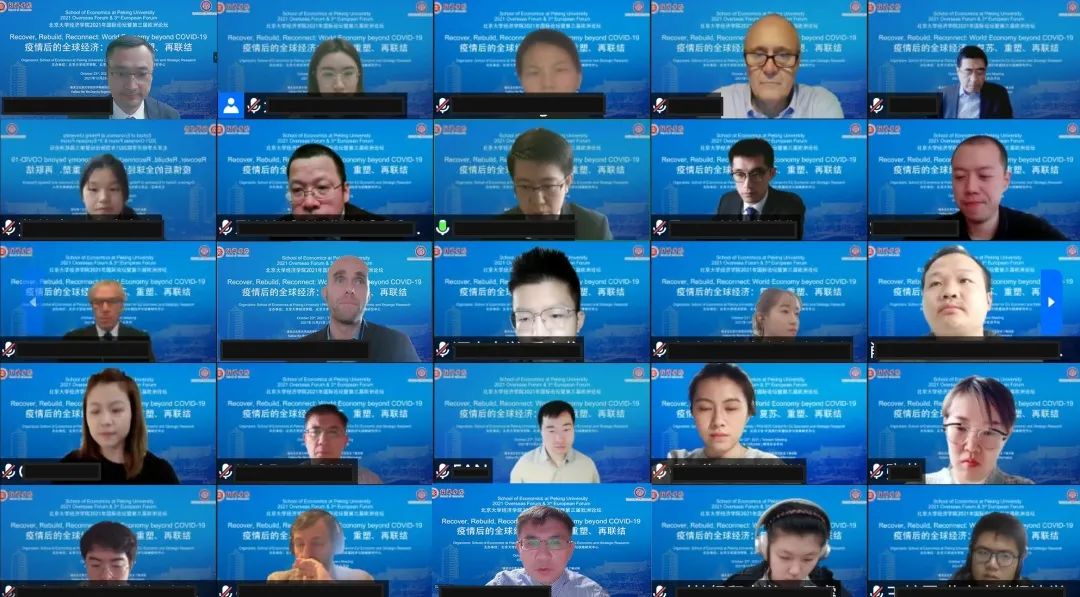
2021 International Forum and the Third European Forum
The forum was chaired by Chen Yi, Deputy Director of the Peking University- Research Center for European Economics and Strategy at Bank of China, and Associate Professor of School of Economics at Peking University. Chen Yi first extended a warm welcome to the guests, teachers and students. He pointed out that the global pandemic of the COVID-19 has caused social and economic chaos, leading to the worst global economic recession since the Great Depression. The purpose of this forum was to provide a broad platform for top scholars and elites in different fields to jointly discuss the global economic recovery and international cooperation, and to promote further communication and exchanges between the Chinese and European academic circles.
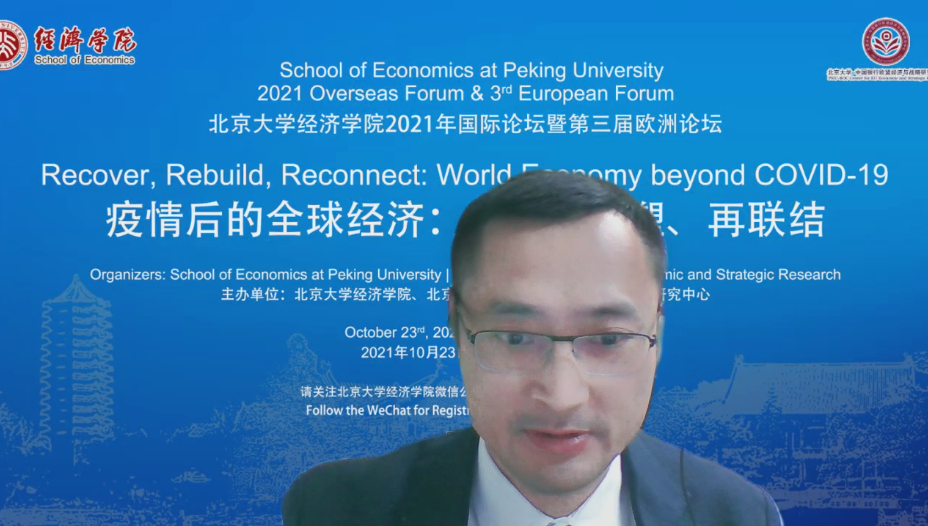
Chen Yi chairing the forum
Professor Qin Xuezheng, Vice Dean of the School of Economics at Peking University, delivered an opening speech. He said that in the past year, the repeated and sudden changes of the epidemic have repeatedly affected people's normal lives and continuously impacted the global economy. The long-term impact of the epidemic on the socio-economic and geopolitics will be inevitable, but we are also delighted to see a turning point. The world economy is recovering, and economic globalization is showing new vitality. Under this context, it has become particularly important for countries in the world, especially major economies, to take responsible actions and cooperate with each other in terms of macroeconomic and fiscal policies.
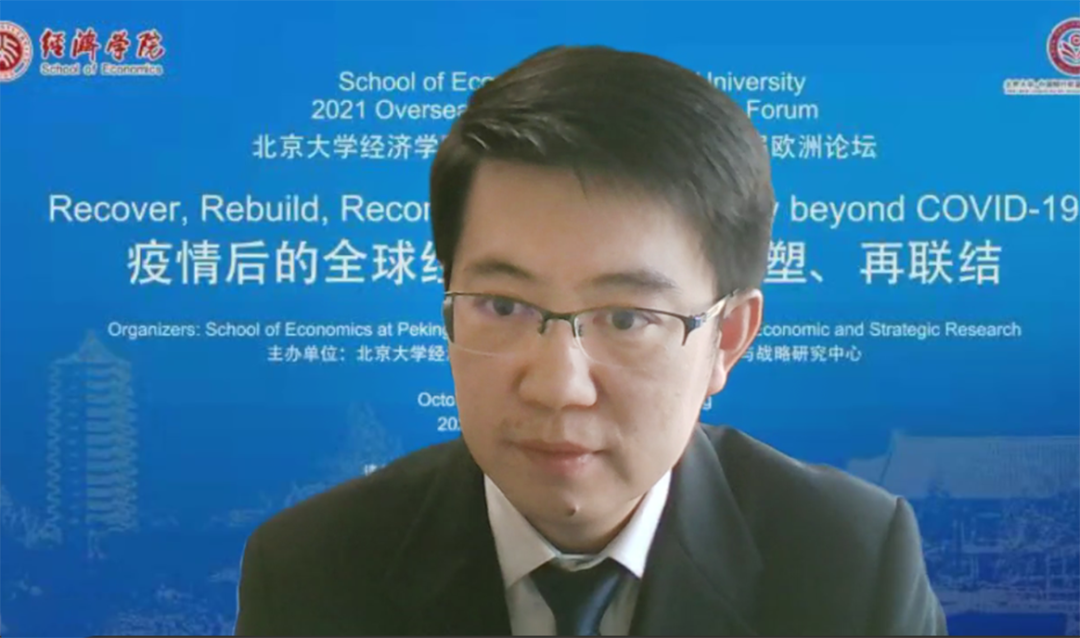
Qin Xuezheng delivering an opening speech
Based on the background of the global pandemic, Giancarlo Corsetti, Professor of Macroeconomics of Department of Economics at University of Cambridge, conducted an in-depth analysis and discussion on how to maintain the stability of the euro zone's economy and financial system.
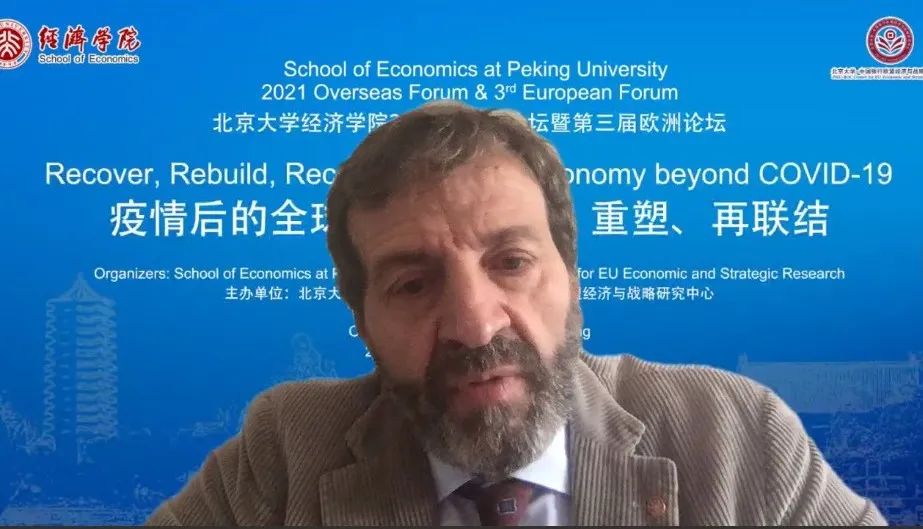
Giancarlo Corsetti delivering a speech
Professor Feng Zhongping, Director of the Institute of European Studies at the Chinese Academy of Social Sciences, analyzed the opportunities and challenges in China-EU relations. He pointed out that as the world's second largest economy and third largest economy, the state and quality of China-EU relations are critical to the world.
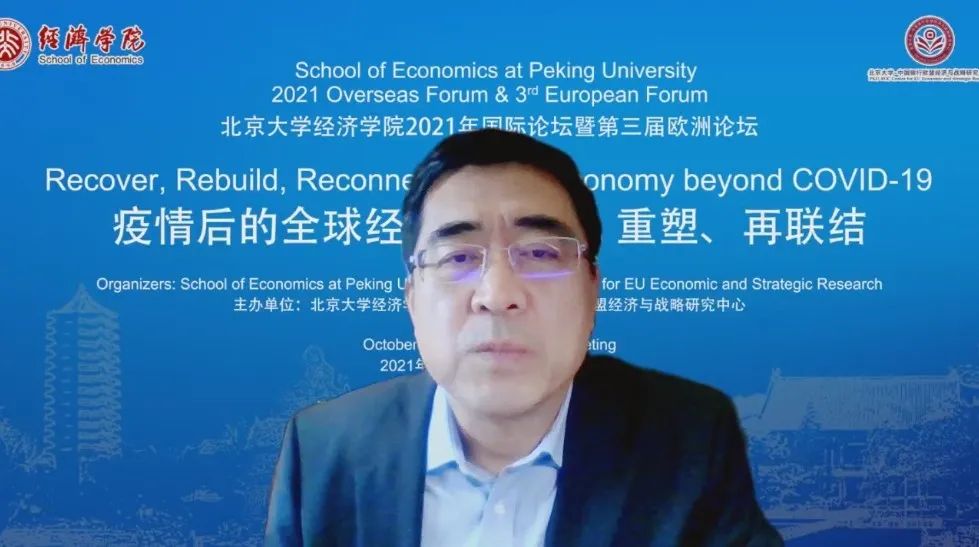
Feng Zhongping delivering a speech
Guido D. Giacconi, Vice President of the European Chamber of Commerce, conducted an in-depth analysis and discussion on how China and Europe can strengthen cooperation to achieve carbon neutrality. He pointed out that global climate change poses severe challenges to mankind. China and the EU should work together in order to achieve the goal of carbon neutrality and to address the challenges brought about by climate change.
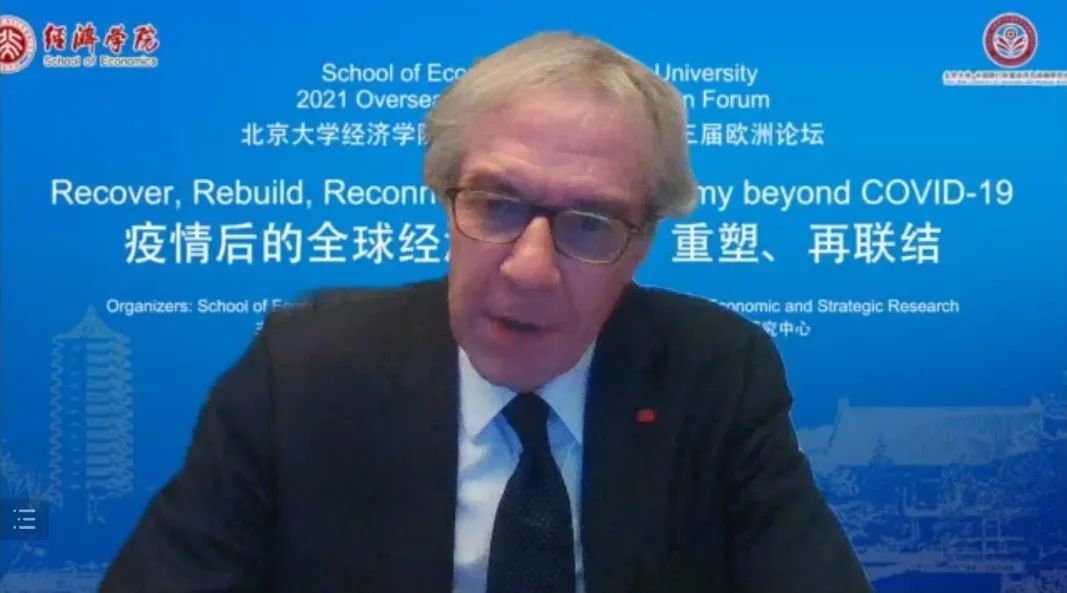
Guido D. Giacconi delivering a speech
Professor Oliver Linton, Academician of Trinity College and Professor of Political Economy in the Department of Economics at University of Cambridge, talked about the impact of quantitative easing policies on liquidity. He pointed out that the impact of quantitative easing on the liquidity of the secondary market is short-lived.
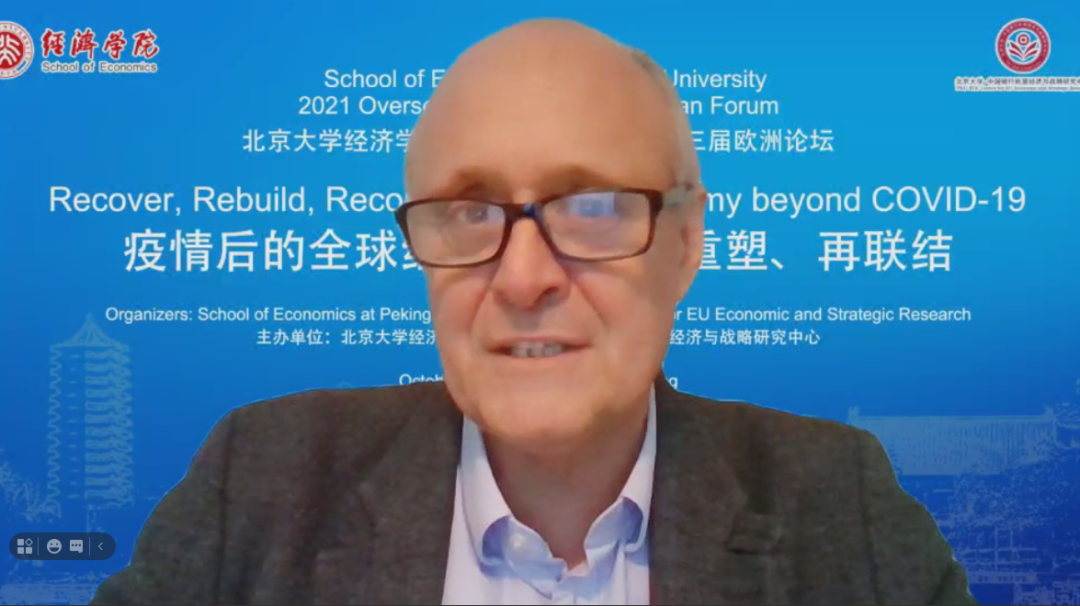
Oliver Linton delivering a speech
Professor Fang Hai, Professor of Health Economics at the China Health Development Research Center of Peking University, discussed the relationship between carbon neutrality and global health. He believes that climate change threatens human health, and carbon emissions are a key factor leading to the year-on-year rise of greenhouse gases and climate abnormalities. Fang Hai further pointed out that since the health care industry itself also generates greenhouse gases, the global health care system should also be improved and developed in the context of carbon neutrality.
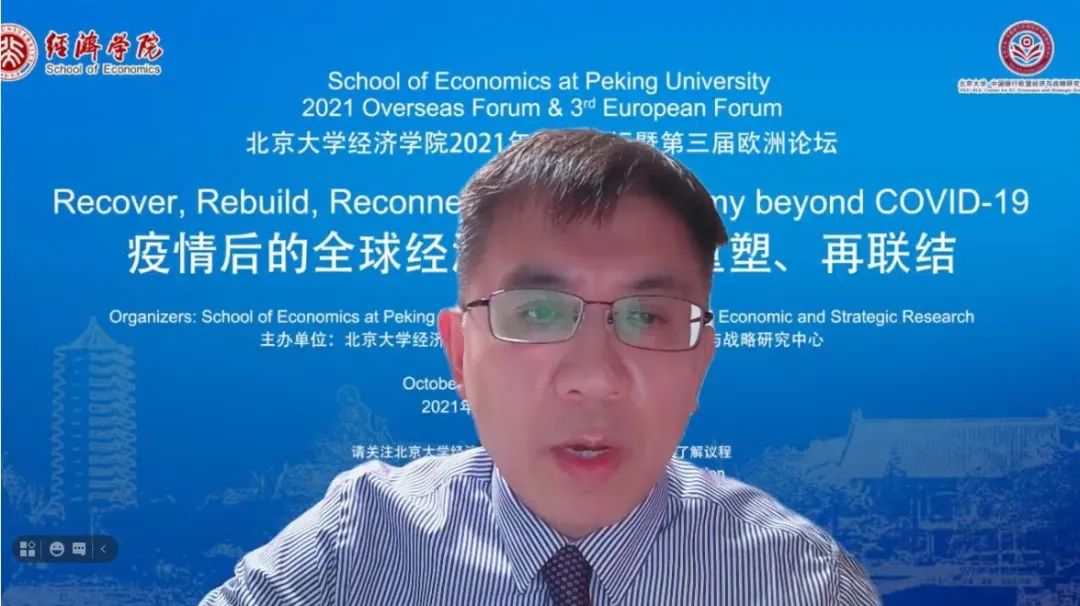
Fang Hai delivering a speech
Lorenzo Casabri, Associate Professor of the Department of Economics at the University of Zurich, focused on the impact of the epidemic on sub-Saharan Africa. Lorenzo Casabri further introduced the social relief measures taken by sub-Saharan Africa in response to the epidemic, and pointed out that in the future, increasing vaccine supply and improving fiscal capacity are the keys to economic recovery.
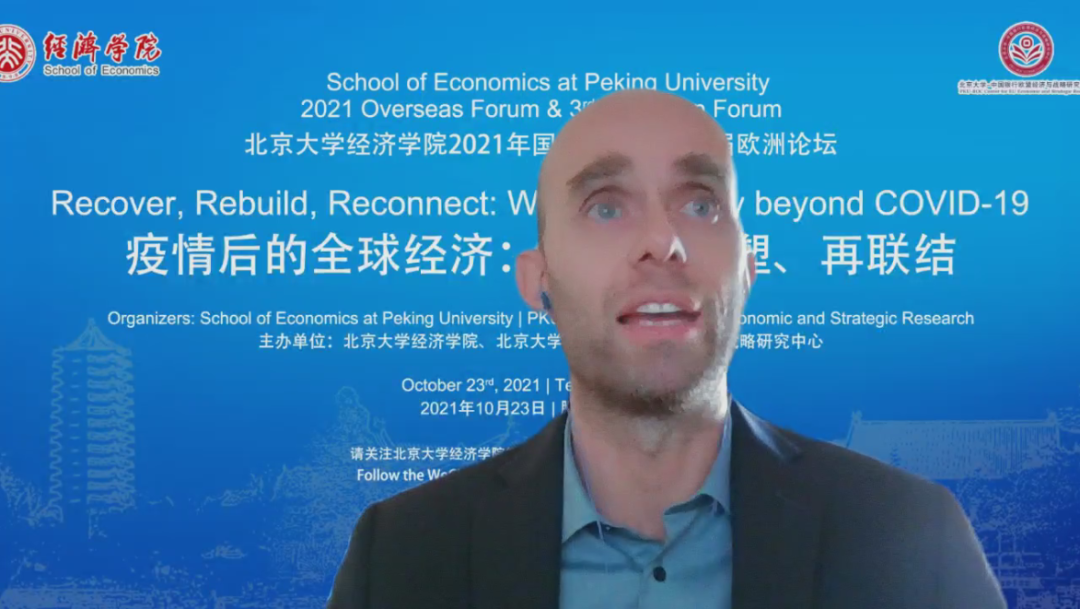
Lorenzo Casabri delivering a speech
The holding of this forum brought together top scholars around the world to talk about the cooperation and future of the global economy in the post-epidemic era, to build an international academic exchange platform for world-class scholars, to promote in-depth dialogue between the Chinese and European academic circles, and to expand and to improve the international influence of the School of Ecomics.